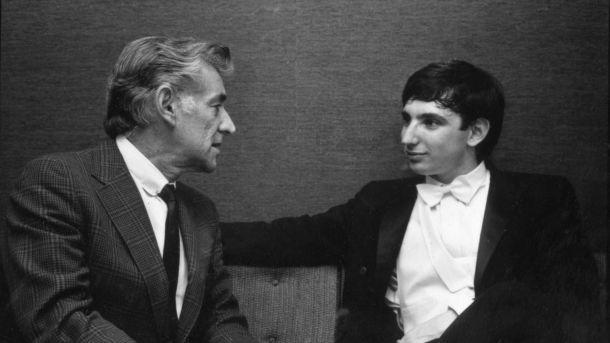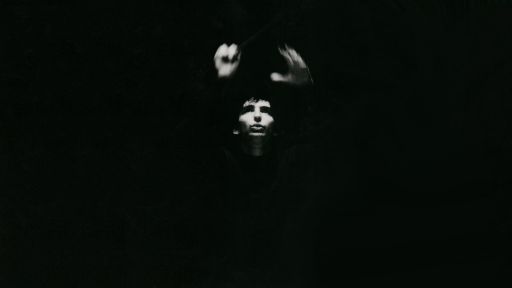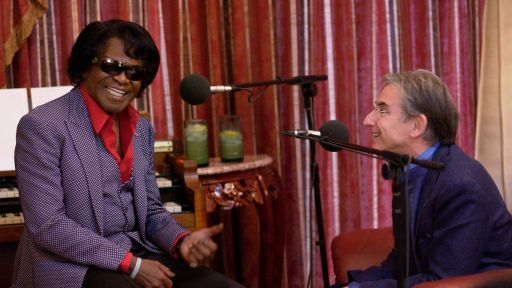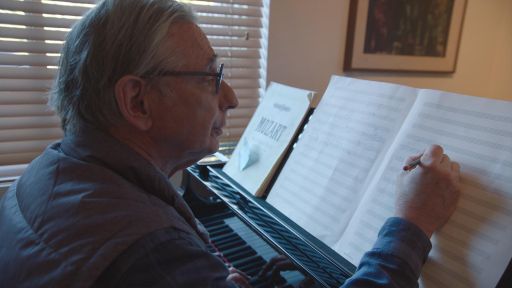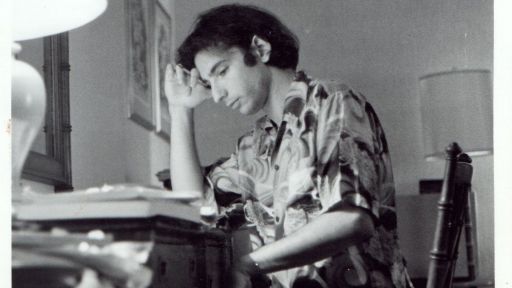The American conductor Michael Tilson Thomas has been the recipient and giver of great advice throughout his life, applicable not only to musicians but to anyone working towards or lucky enough to already be living their dream.
“…you’re going to have to live your life as you have to live it, whatever it costs.”
An early piece of advice that Thomas still recalls is from his grandmother, who was a star in the Yiddish theater. “A hundred years ago,” he said in the American Masters film about his life, she “…knocked ’em dead season after season.” As a performer, she saw a kindred spirit in her grandson. “She was a special kind of grandma. She was in her 80s; her hair was flame red; she had 6 or 8 bracelets on each arm; a long cigarette holder and wraparound sunglasses. She’d settle herself on the chaise lounges in the backyard, and she’d say, ‘I see you; I see who you are. You know, you’re like me; you’re going to have to live your life as you have to live it, whatever it costs. That’s what I did, your grandma.’ ”
Perhaps it was his grandmother’s advice to “live your life as you have to live it” that he had in mind when deciding whether to pursue his passion for music. “I knew I wanted to be a musician, a performer, since I was 13, but I still had that bargain with my parents, ‘Keep studying the science stuff; when you’re 20 years old you’ll make a decision.’ On my 20th birthday, I got a phone call from Gregor Piatigorsky, who said, ‘You’ve been selected to be the new conductor of the Young Musicians Foundation Debut Orchestra.’ So, that seemed to be a sign that we were going in the direction of music and, of course, show business.”
“…in the music there are designs and structures, and concerning these things you must make decisions. And there are consequences for your decisions.”
Along the way, Thomas naturally received a lot of advice from his music teachers, but there are two stories that he recalls especially vividly.
“Along the way, I studied at USC with an extraordinary woman named Alice Ehlers, and she was a wonderfully brilliant, eccentric lady… and she at a lesson one day, as we were struggling, struggling through a piece of Bach – me, 13; she 80-something – she pulled my hand off of the keyboard and she said, ‘Dear, why do you always do such stupid things?’ ‘But Madame, last week you told me to do this right at this place.’ She said, ‘I tell you to do something? Nonsense. I would never tell you to do anything. It doesn’t interest me in any way what you do or you do not do. I only point out to you that in the music there are designs and structures, and concerning these things you must make decisions. And there are consequences for your decisions.’ ”
“In classical music, analysis is inseparable from enjoyment.”
“Ingolf Dahl, who was becoming my Composition and Musicianship and Conducting teacher, took me a to a chamber music concert, and we listened to the first movement of a piece, and he said, ‘Did you enjoy that?’ I said, ‘Oh, yes, very much.’ He said, ‘What form was it in?’ And I said, ‘Well, I wasn’t listening to analyze it; I was listening to enjoy it.’ And he said, ‘In classical music, analysis is inseparable from enjoyment.’ ”
“You know, being a conductor means you’re trying to get a lot of people to agree where ‘now’ is.”
In addition to receiving wisdom from his own family and teachers, Thomas recalls advice he received from two of the greats: James Brown and Leonard Bernstein. Thomas was impressed with Brown’s concept of time, and was lucky enough to interview him about it:
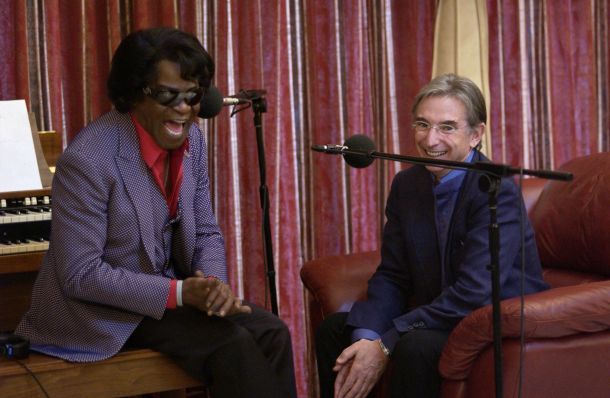
James Brown and Michael Tilson Thomas at the singer’s home in Beech Island, South Carolina on April 26, 2006. Photo: Stefan Cohen
Brown: Everything has to be right on the money with me.
Michael: Well, you know, I say this to my young conductors I work with. I say, “You know, being a conductor means you’re trying to get a lot of people to agree where ‘now’ is.”
Brown: Now – right! I know that, ’cause I would say … If I said, “Now,” then I just missed it, because when I said, “Now,” it was “now.” Yeah, yeah.
“And I use that,” Thomas says. “If I’m rehearsing a piece by Stravinsky, I’ll say to the winds and brass, ‘How together do I want this? I break out – bop – bop – bop – in a cold sweat! Bop – bop – bop – bang!! That’s how together I want it.'”
“…when you really have made up your mind what it means to you, and what you intend to do about it, it won’t matter to you what I think or anybody else thinks.”
Thomas had the opportunity to get to know another great musician, Leonard Bernstein, after winning the Koussevitzky Prize, which is awarded to outstanding student conductors. Bernstein came to a performance of Mahler’s 5th Symphony that Thomas was conducting early in his career. After the concert, Thomas recalls asking Bernstein what he thought of the performance, and he replied, “What did I think of it? I think that when you really have made up your mind what it means to you, and what you intend to do about it, it won’t matter to you what I think or anybody else thinks.”

